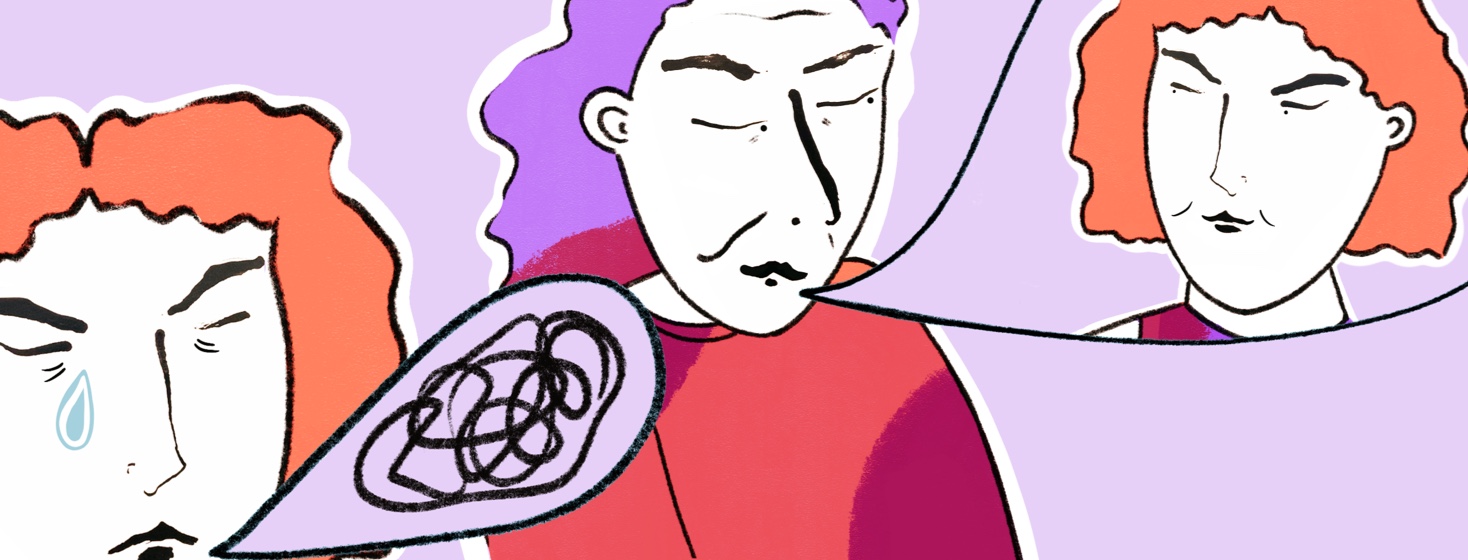Your Story of My MS
The first person I told about my MS was minutes after diagnosis. I'd promised a friend to give her a call after the doctor's appointment. As I breathlessly walked through the hospital corridors, I got my phone out of my pocket. On the lock screen, I saw a text from my friend.
"Call me as soon as the appointment is over. It'll be okay."
I felt detached as the call went through, but my voice was surprisingly steady.
"It's MS. They think it's progressive. I don't know what's next."
Silence as both our minds stumbled to understand the facts. After a few minutes, the call ended, and two drastically different stories, and truths, started to form.
Communicating my MS to the world
Similar to other articles I've written, this one also ties into something I've previously explored: the story we tell ourselves about our MS and how we communicate it to the world. How often do we think about what narratives the people around us create about our MS?
For the first few years after my diagnosis, I believed facts alone would invite people around me into my MS bubble. Being (rightfully) preoccupied with learning the ins and outs of my MS, I forgot that as I started to create my understanding, so were the people around me. Facts only had a small part to play in the complex narratives we began to construct. Separate, linear storylines were expertly written, becoming increasingly different with time.
Seeing both sides
Do you know those movies where you get halfway through, the narrative shifts, and you see the same story from another character's perspective? It's a cinematic trope that adds complexity and perspective. In storytelling, it's used to gain a new level of sympathy for both characters. We understand both sides.
In my article Whose MS Is It Anyway?, I wrote about which story of our MS we believe. In it, I explained how many of us carry big assumptions about what our MS does to our identity. We can construct negative thoughts about our inherent worth if we are not careful. What's interesting about this is that believing in a single story can quickly create gaps in our knowledge. Luckily, we don't necessarily have to believe in someone else's story of our MS. Instead, we can learn to understand our own experience better through theirs.
Understanding my MS through others
When we talk about our MS with someone else, we should stay open to all versions and perspectives. I understand my MS from my perspective, but not necessarily how it looks from the outside. Where I see weakness, someone can see bravery. When I feel overbearing, someone might see a person struggling with loneliness. Where I feel defeated, someone could see resilience.
We bring this with us through life, often blind to how our MS weaves into the lives of people close to us. Dealing with our MS can be a handful, but the outside world might not easily understand our coping routines and behaviors. They don't always know the whole picture. Meeting the reality of my MS's effects on someone else can be challenging. But I want us to have compassion for each other's struggles, so there is no other way. MS can be hard on everyone.
Connecting to each other
After directing most of my curiosity to my symptoms, perspectives, and understanding of MS, I turn the mic over to you. Not necessarily you, as in the person reading this article, but the people I interact with daily. I don't think I would have had the courage to do so at the beginning of my MS journey. Honestly, it will probably always be a bit scary. So what changed?
Ownership. I know and accept my MS story and understand its complexities. I needed that self-compassion to let go of my view and see how it affected people around me. But it's hard. Hearing how my MS has affected people can leave feelings of guilt and shame.
When I reflect on the phone call to my friend, I realize how little we had to understand each other's situations. The more we care about each other, the harder it can be to open up. People often say, "Oh, I shouldn't complain; you've got it much worse." Why share my grief when yours is heavier? But I think MS can be lonely because we sometimes stand alone in our story. There's only room for a single truth. Connecting my MS story to yours is like a choreographed dance where we learn to move together and take turns leading and following. Because my story is true, but so is yours.

Join the conversation